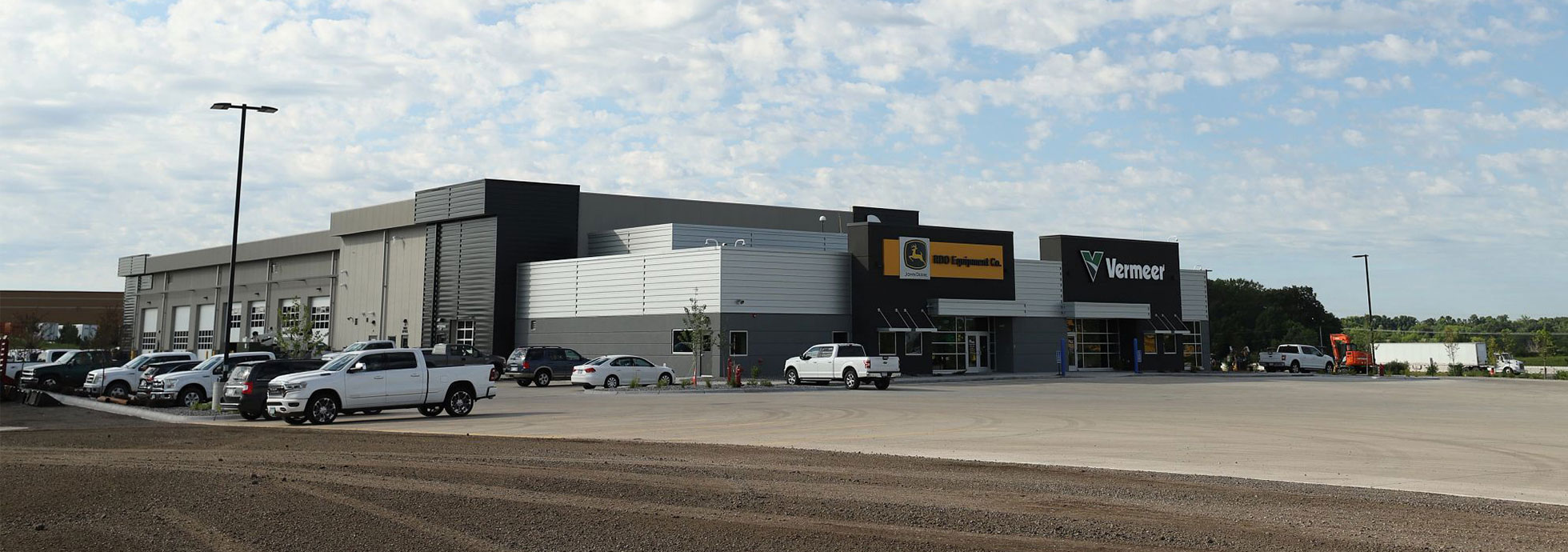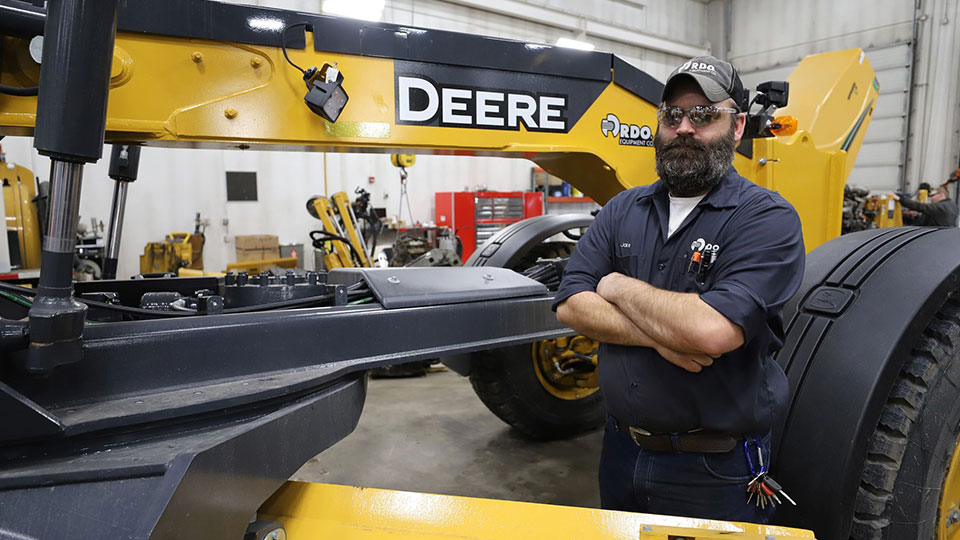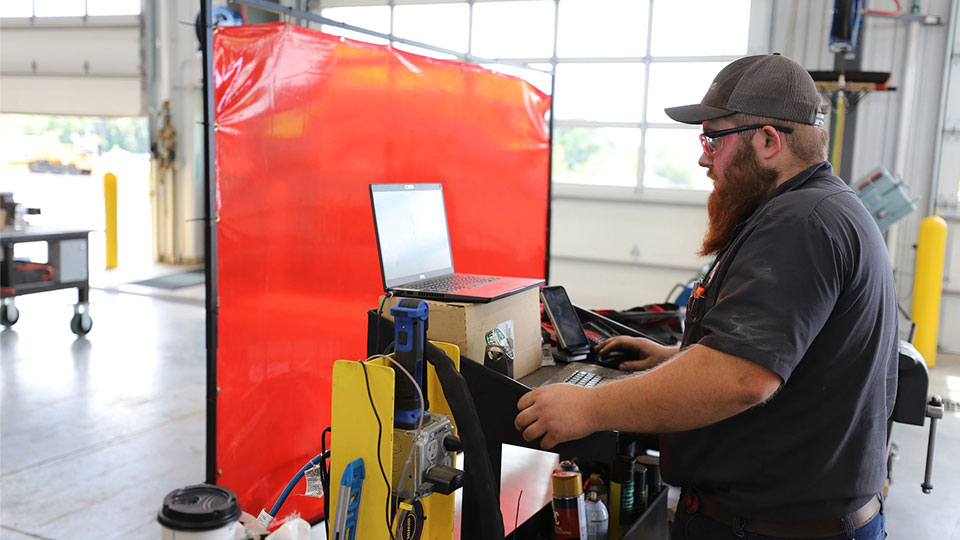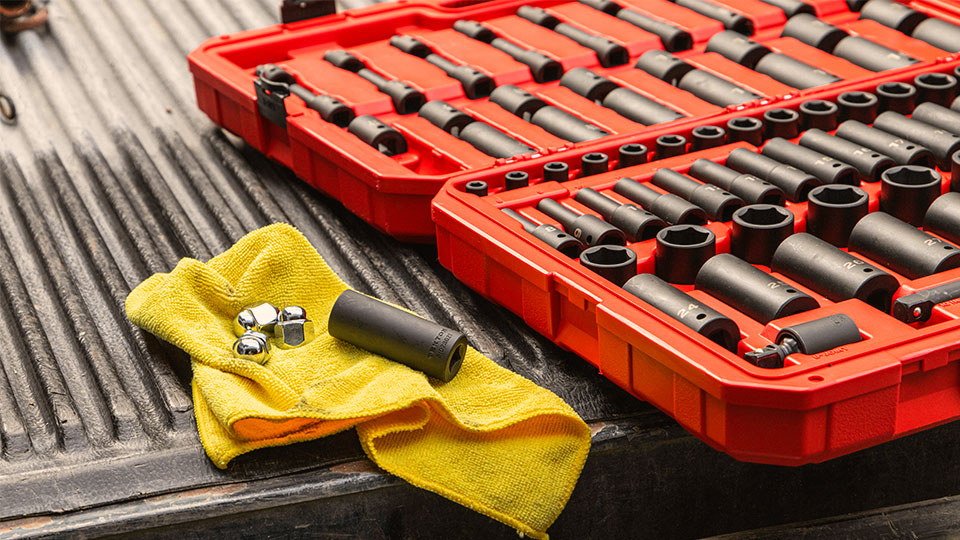
Finding the best-fit employer for you as a diesel technician can be a challenge. You want to work for a company that values your skills, will invest in their development and prioritizes your safety above all.
Beyond this, you want to enjoy what you do and the people you work with. That’s why this decision is so important. It’s also tricky, though.
Here at RDO Equipment Co., we’ve been connecting diesel technicians (like you) with positions in our organization for more than 50 years. Over this period, we’ve learned a thing or two about what diesel techs look for — and should look for — in an employer. We also realize how stressful this process can be for people looking for a new company.
In this article, we’ll give you seven tips for selecting your next employer. This will help you feel confident as you navigate this process once you feel it's time to move on from your current situation.
While this first tip might seem kind of silly (of course, you should know what you’re looking for before selecting an employer) it’s essential. Go into this process with a goal for what you’d like to accomplish.
As a diesel technician, there are a lot of places you can work and jobs you can perform.
For example, if there’s one in your area, you could work for a trucking company, performing repairs on its fleet of trucks.
Or, you might prefer to work on heavy agriculture, construction, forestry or mining machinery at a dealership or manufacturer.
Maybe you want to work in mobile maintenance. Are there any shops and companies in your area that offer this career option?
Research and figure out where you’d like to end up. This will help you take the steps to get there. If you don’t know where to start, begin with what interests you and go from there.

Once you’ve decided what you’re generally looking for, start thinking about the company’s size.
While not always the case, a company’s size can impact things like:
There are perks to working for companies of all sizes — this is not to say a large one is always better to work for. Small businesses, for example, can feel closer-knit and give employees a better connection to its direction, progress and leadership.
Think about your life and career goals too. Some may be more accessible at a larger employer, but not always.
Sign Up: Service Technician Monthly Newsletter
Become a more profitable, successful mechanic with insights and resources sent to your inbox every month.
Companies are made up of people. The best organizations are where employees are heard, valued and rewarded for a job well done.
This is the foundation of a good culture and employee experience.
Companies with these cultures often stand the test of time and have rich histories of employee development, community impact and growth.
As you look for your next employer, keep in mind how long it has been around, what its history is and where it came from.
This history will also inform its values. Use it as an indicator of its culture.
If an employer values innovation, for instance, it indicates a commitment to growth through listening to customers and employees and investing in what they hear.
Do some research on the organizations you’re considering. Many list three to six core values directly on their websites, start there.
Related: 8 Tips for Starting a New Job as a Diesel Mechanic

There are around one million diesel technicians in the U.S. employed by thousands of companies. Within each community, businesses develop reputations with employees and customers.
As you search for your next employer, listen to what others say about working there.
If you have a couple of friends who had a bad experience, it might indicate that you wouldn’t like it either. On the flip side, if you’re hearing a lot of great things about one, consider applying.
Outside your immediate circle, check out reviews on websites like Glassdoor and Indeed. What current and former employees leave on a review websites can give you good insight into what it’s like to work there.
Another thing to consider when looking for your next employer as a diesel technician is how long people have been working there and how often people leave.
A business with longer length of service indicates a caring, values-based culture where employees like to work and growth exists. That said, if a company’s turnover is high, particularly within its diesel technician roles, this might not be the best place for you.
While you can find some of this information on job boards like Glassdoor, Indeed and LinkedIn, it’s also okay to ask questions about specific tenure statistics during your phone screening.
As a technician, your first opportunity to get a real feel for a company is during your interview. That’s why it’s important to pay attention to your interactions and how they make you feel throughout this process.
While they evaluate your fit as a potential employee, measure them as an employer.
In your interview you’ll likely meet the people you’d be working with daily — maybe this is your manager or another technician. In addition to asking them how they enjoy their job, get a feel for how well you connect. If these are your coworkers, you want to be able to get along with them.

This final tip could be the most important. The questions you ask during an interview can make a big difference to your understanding of the role, the company and the culture.
Sometimes diesel technicians hesitate to ask certain questions during their interview. That said, don’t hesitate to lean in and find out what you want to know.
Though it’s hard to generalize, here are some categories of questions you may want to ask:
Although it’s not required, it’s recommended to come to an interview prepared with three to five questions. Time permitting, you may be able to ask even more.
Related Article: 12 Questions to Ask In Your Next Diesel Technician Interview
Selecting the next company you work for as a diesel mechanic is not easy — no matter how long you’ve been in the profession.
The last thing you want to do is accept an offer only to find out it's not the right fit for you. If that happens, you may be back on the hunt far too soon.
To select a great employer, make sure to understand what you’re looking for, evaluate the company’s size and history, listen to what other technicians say about working there, get a feeling for the company’s tenure and ask plenty of questions.
Now that you know these seven tips, your next step is to start doing some research. Get to know your area's job market and take stock of your options.
If you hope to advance your career with this next move, here are 6 Tips for Advancing Your Career as a Diesel Mechanic.
RDO Equipment employs nearly 1,000 full-time diesel technicians (we call them service technicians) in more than 80 locations across 12 states.
If you’re looking for your next opportunity, check to see if we have one near you.
As a pay-for-performance employer, we reward hard work and dedication through regular overtime and profit sharing.
Join the RDO team today and take your next step toward becoming a service technology leader.